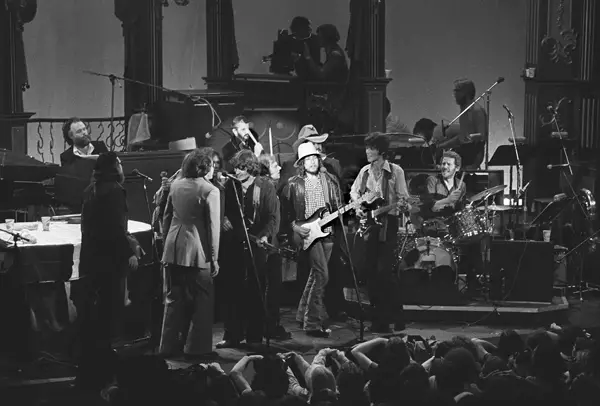Jonathan Dodd’s latest column. Guest opinion articles do not necessarily reflect the views of the publication. Ed
Back there in the late Sixties, or maybe the very early Seventies, a strange thing arose in popular culture. Suddenly there were Supergroups. I’ve been thinking again, always probably a bad thing, but I can’t help myself. I just stop moving, or carry on moving and stop thinking about what I’m doing, or find myself doing the same thing for a time, and there it goes. My mind starts wandering.
I remember when I was much smaller but not necessarily less wise than I am now or was then, people kept on telling me that my attention was always wandering. As if this was a bad thing. Nobody ever explained what this actually meant, of course, because adults are absolutely brilliant at telling kids off for doing or not doing things without explaining what was the difference.
Droning on about South American capitals
Sometimes they decided that I daydreamed a lot. As if that made any sense either. I remember school reports, which kept saying I would get on much better if I just stopped daydreaming and concentrated. But nobody explained what that meant either. I remember my childhood mostly as a lot of adults telling me off for doing or not doing things, and never knowing what they were talking about.

I rather imagine everyone can relate to this. As far as I was concerned, I was thinking when I was daydreaming, and I was concentrating very hard. Especially when my mind was wandering, because I needed to keep up with it because the pathways it was taking were rather wonderful. And especially when the alternative was some old fart droning on about South American capitals on a hot and stuffy summer afternoon.
A universal sense of humour
I never actually referred to my teachers as farts, even though farting was, as with all children, a deeply familiar thing. I suppose I didn’t associate farting with adults, especially stuffy droning adults, because farting was fun. I remember once reading about a convocation of world humour, when people who were supposed to be funny got together trying to decide whether there was a universal sense of humour or not.

It was one of those things about nature and nurture. There was once a survey on body taboos, which discovered that people from different societies behaved quite differently if surprised without clothes. I learned that some cultures would rush to cover their faces, or their hair, or some other bits, rather than the things we would try to cover up.
He described himself as an old fart
Apparently all these comedians and writers went through lots of jokes from each country and discovered that the only truly universal funniness is any humour around farting. Heaven knows why, but that’s how it is. Apparently. I only learned to call stuffy old people farts when I was mostly through adolescence. Actually, it was the first time I read Slaughterhouse 5 by Kurt Vonnegut, in which he described himself as an old fart. I thought that was funny then, and I still do. I don’t know why, but the world’s comedians support me here.
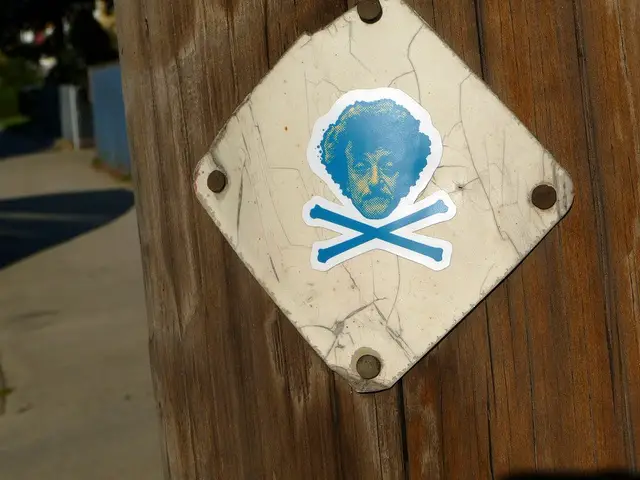
Anyway, there I was, my mind wandering pleasantly, concentrating hard and quite awake, not dreaming at all. If I was much younger some adult would have interrupted me at least once by now and accused me of daydreaming, mind-wandering and not concentrating. I still don’t get it.
I find that somewhat weird
Back to supergroups. I was disturbed vaguely by this phenomenon at the time, and I could never quite put my finger on it until now. Children are very tribal, and far too fanatical to things, usually without good reason. Take football fans, for instance, becoming imprinted by one team rather than any other, like baby ducklings, often without knowing why, and following that team for the whole of their lives. I find that somewhat weird. Not because the fan thing is wrong, but because in my mind it should be temporary behaviour rather than lifelong.
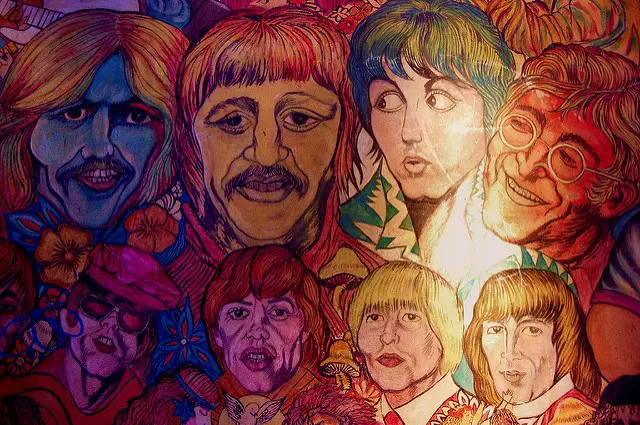
My childhood was punctuated by preferring Corgi Toys to Dinky Toys, Boy Scouts rather than Sea Scouts, the Beatles rather than the Stones, etc. Arguments and even fights would occur between different factions, and it was partly based on actual preference, but more to do with people you liked or didn’t like. It was all very important at the time, like fashion and haircuts.
Their departure left a huge hole
I remember my desolation when the Beatles broke up, partly because of the loss of that extraordinary engine of creativity and constant delight, but mostly because they were such a huge part of the landscape of my life, and their departure left a huge hole. I was also used to discovering groups and following their progress towards fame and fortune, like very successful armies.
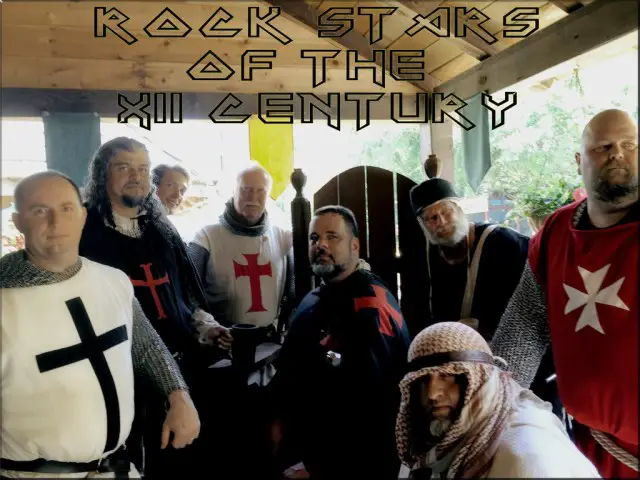
Supergroups, however, didn’t operate in the same way. They were already-successful musicians breaking up and reforming in different combinations. They brought fully-formed skills and talents together in different ways. You could admire them, but it was harder to be fanatical about them, because these bands didn’t have a life history. Their struggle to emerge was missing.
I had no personal investment in them
I always enjoyed the music of groups like Cream and Led Zeppelin, but I hardly ever felt the same way about them that I did about Dylan or the Beatles or the Kinks or Police or any other band who I discovered in their early days, because I had no personal investment in them, and very little identification.

You can relate to bands singing about love and rejection and hard times on the way up because that’s your life too. But it’s hard to relate to bands who are all super-rich and successful before they come together. They have to have something going on that’s very special indeed to climb over that barrier into my heart.
It really was love at first listen
I can only think of one supergroup that I truly adored, and that was Crosby Stills and Nash, shortly joined by Young. This was probably helped by me not knowing much about any of them before they formed. I knew that Graham Nash had been in the Hollies, a Birmingham band that were good but not exceptional. David Crosby was in the Byrds, a huge band in its time but I couldn’t name any members apart from their leader. Stephen Stills had been in a band called Buffalo Springfield, which I had never heard of before, and Neil Young came from the same band.
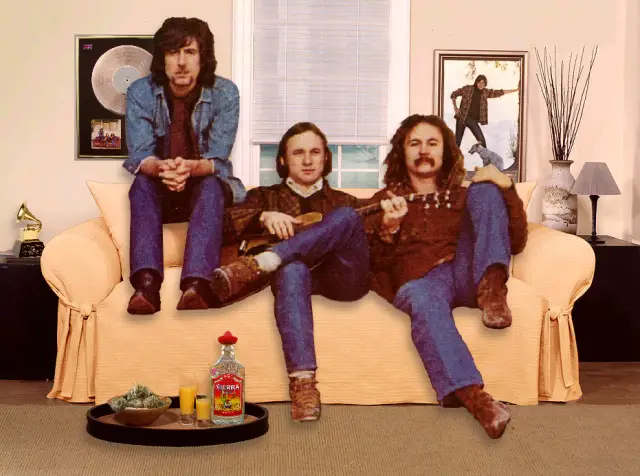
I remember hearing their first album in a friend’s flat, and I was completely bowled over by their sound and their close harmony and the beautiful songs. It really was love at first listen, and their second album was even better. I didn’t even care that their next albums weren’t generally anything like as good, because they had already done it. I was able to go back and find their earlier work, and follow them into the future through their other projects, and I discovered many other wonderful artists through them too.
The EU is rather like a supergroup
I’m glad I concentrated through this mind-wandering, because it’s been great fun, and a learning experience too. I’m going to listen to CSNY again, and to that album by Judy Collins (Who Knows Where the Time Goes) that was produced by Stephen Stills, and there’s so much good Neil Young stuff out there still. And Buffalo Springfield was a great band too. Sadly, I never really liked the stuff that Crosby and Nash did afterwards though. Hey ho! You can’t win ‘em all.

The other thing I didn’t realise that this was leading to is the European referendum. The EU is rather like a supergroup. Lots of people you know well, some you vaguely know and some you’ve hardly ever heard of, trying to become a new band. Some people love them, some despise them, most aren’t that bothered. Unlike supergroups, we’re soon going to be able to decide whether we want to stay in it or separate and pursue a solo career. That doesn’t always work though. Will England stay with the supergroup, hoping it writes some great music, or will we become like David Crosby or Sting in the international arena?
I have no idea. I’ll be listening to the music and finding out as time goes by.
If you have been, thank you for reading this.
Image: David Gans under CC BY 2.0
Image: Devanath under CC BY 2.0
Image: Bart Everson under CC BY 2.0
Image: miserlou under CC BY 2.0
Image: Ludovic Bertron under CC BY 2.0
Image: WarriorMonk1118 under CC BY 2.0
Image: David Brossard under CC BY 2.0
Image: oddsock under CC BY 2.0
Image: NixSeraph under CC BY 2.0

